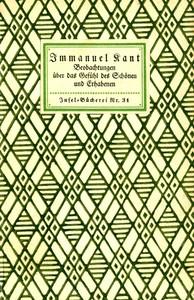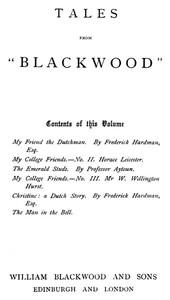Read this ebook for free! No credit card needed, absolutely nothing to pay.
Words: 68733 in 14 pages
This is an ebook sharing website. You can read the uploaded ebooks for free here. No credit cards needed, nothing to pay. If you want to own a digital copy of the ebook, or want to read offline with your favorite ebook-reader, then you can choose to buy and download the ebook.


: The Two Great Republics: Rome and the United States by Lewis James - United States Politics and government; Rome Politics and government 510-30 B.C.
ians the right of membership in this assembly.
The comitia centuriata was originally an assembly of the Roman citizens in the form of an army, and the divisions into classes was based upon the kind of equipment with which each soldier was able to provide himself. The eighteen centuries of knights represented the cavalry of the army. These centuries of knights possessed the right of having their votes taken first, which constituted another advantage for the wealthy classes. In 241 B.C. the knights were deprived of their right of voting first, but this privilege was given to the centuries of the first rank, assigned by lot.
It would be hard to say whether it was the increased power of the tribunes which developed the authority of the comitia tributa, or whether it was the increased power of the comitia tributa which first gave to the tribunes the vast power which they were ultimately able to exercise in Rome. However this may be, the fact is evident that the power of the comitia tributa and of the tribunes rose together. At a later date, membership in the comitia tributa was not limited to the plebeians, but the influence of the patricians in this assembly was always inconsiderable and they generally absented themselves from its meetings. Although the wealthy classes had no predominating influence in the comitia tributa, its decision upon any question was far from being, necessarily, the decision of the majority. Measures submitted to the comitia tributa were carried or defeated by the vote of the majority of the tribes, and the numbers enrolled in each tribe were very unequal, all the inhabitants of the city of Rome being enrolled into four tribes, and a very disproportionate power being thus given to the rural voters.
The meetings of the comitia tributa were generally presided over by a tribune, although sometimes by one of the consuls. At first the laws passed by the comitia tributa were required to be confirmed by a vote of the comitia centuriata, but this requirement was abolished in 339 B.C. by the Publilian and Horatian laws. The provisions of these laws were reaffirmed by the Hortensian laws in 286 B.C.; and it is certain that at least from this date the full validity of a law passed by the comitia tributa was never questioned.
In the comitia centuriata and the comitia tributa we see the anomalous condition of two independent law-making assemblies; and as there was no division between them of the field of legislation, it is hard to see how, even with the controlling influence of the Senate, conflicts between the two were so generally avoided. So completely were the two comitiae on an equality as to the validity of the laws enacted by each that the records generally fail to show by which assembly any particular law was passed, but this can generally be ascertained by looking at the name of the proposer of the law. If a tribune appears as the proposer of the law it was passed by the comitia tributa; but if the proposer was a consul, praetor, or dictator, the law was the work of the comitia centuriata.
The powers of the two comitiae as to the election of officers were differentiated. The comitia centuriata, at all stages in the history of the Roman republic, possessed the right of electing the highest officers of the republic--the consuls, praetors, and censors. The comitia tributa originally possessed the right of electing only the tribunes and the plebeian aediles; at a later period they elected also the curule aediles, the quaestors, the majority of the legionary tribunes, and all the inferior officers of state. The comitia tributa, in the later days of the republic, secured an indirect control over the election of the higher officers also, since the adoption of the legal principle that all Romans who sought the highest honors of the state must pass through a regular gradation of offices rendered it necessary for the comitia centuriata to choose as consuls and praetors men who had previously been chosen by the comitia tributa as quaestors and aediles. It must be remembered, however, that the law relative to the order in which the various offices must be held was of a directory rather than a mandatory character; while in the main obeyed, it was, nevertheless, frequently violated.
The various public offices here referred to will be discussed in the later chapters as each office first comes into existence in Roman history. It remains at this time to speak of the organization, powers, and authority of the Roman Senate, particularly as to its control over the work of the popular assemblies.
The extent of the power of the Senate over legislation varied greatly in different periods of Roman history, and these differences were caused more by the existing political conditions, and by the relative strength of the aristocratic and popular parties in Rome, than by any express changes by legislation.
At the very outset of Roman history we see the Senate existing as an aristocratic body, embodying in itself both the oligarchical principles upon which the Roman government was based, and also the patriarchal basis upon which the Roman family organization and later the organization of the Roman state itself had been built.
Originally, each of the three Roman tribes was divided into ten gentes, each gens into ten curiae, and each curia, besides constituting one of the units in the comitia curiata, furnished one member of the Roman Senate. The Senate continued after the organization by curiae had become obsolete. Membership in the Senate was at all periods for life, but did not descend from father to son. Vacancies in the Senate were filled by appointment, these appointments being made first by the kings, later by the consuls, and finally by the censors. As the censors were chosen only once in five years, vacancies in the Senate were filled only at such intervals. The aristocratic party in Rome, by keeping control of the office of censor, was able to perpetuate their majority in the Senate. In filling such vacancies, preference was given to those who had held some of the higher offices during the preceding five-year-period. Many members of the Senate had held the office of consul; many more hoped to hold it in the future. All members of the Senate, with few exceptions, had held some civic office, and were men of property and of mature age.
All the dignity of Rome and of the Roman government centered in the Roman Senate. The minister of Pyrrhus described this body as "an assembly of kings," and it might well have aroused the surprise and admiration of a foreign ambassador, as nowhere else in the world at that time was it possible to find such an assembly, either from the standpoint of the character of the body itself or of the qualifications of its members.
At an early period no law could be presented before the comitia centuriata or the comitia tributa without having been previously approved by the Senate, and after the passage of the act, either by the comitia centuriata or the comitia tributa, it must be promulgated by the Senate before it went into effect. The Senate, therefore, was never possessed of a direct general power of legislation, but had in the fullest degree both the power of initiating legislation and of vetoing it. At a later period the control of the Senate over legislation became theoretically less, but practically greater.
Free books android app tbrJar TBR JAR Read Free books online gutenberg
More posts by @FreeBooks









